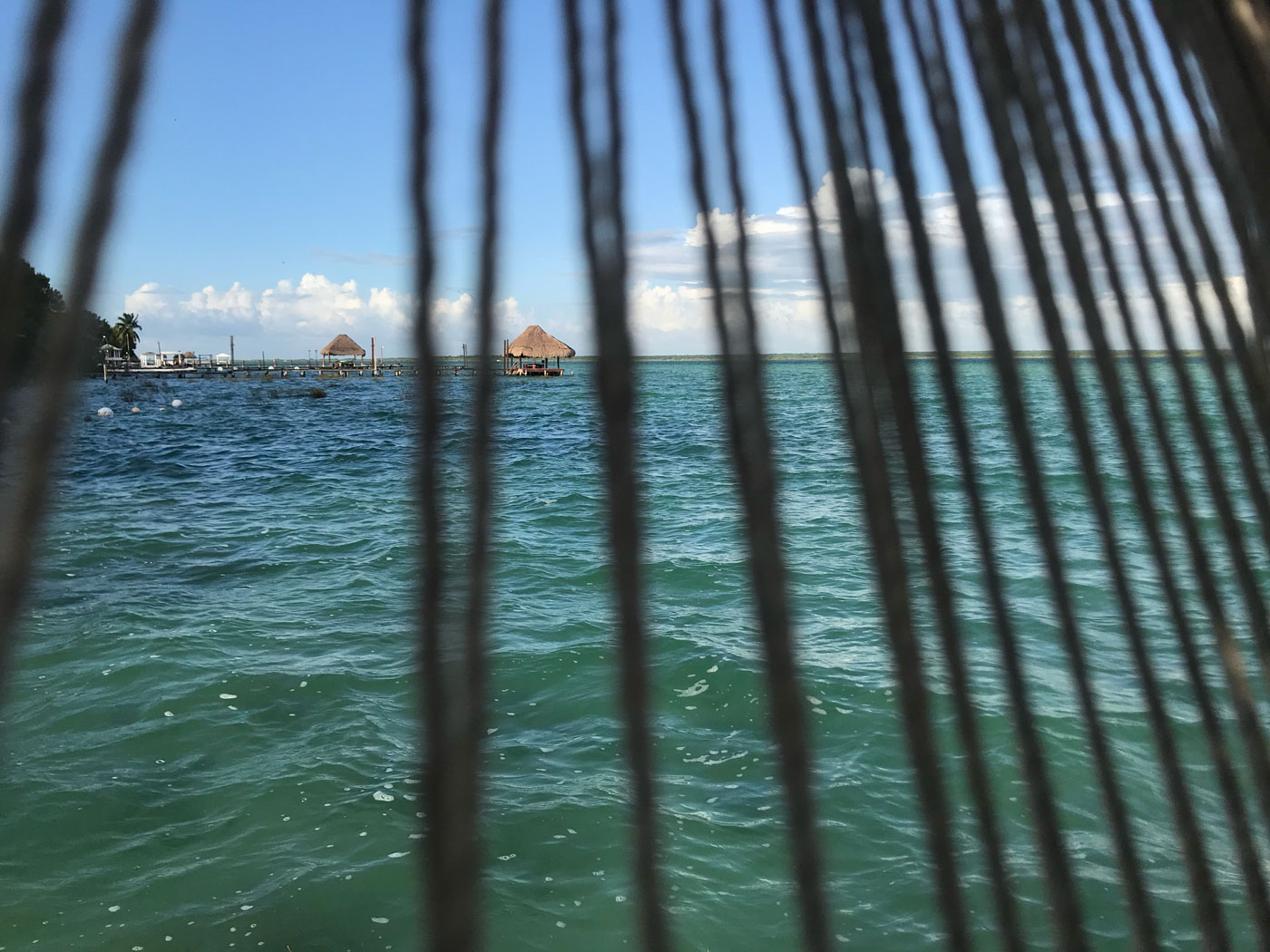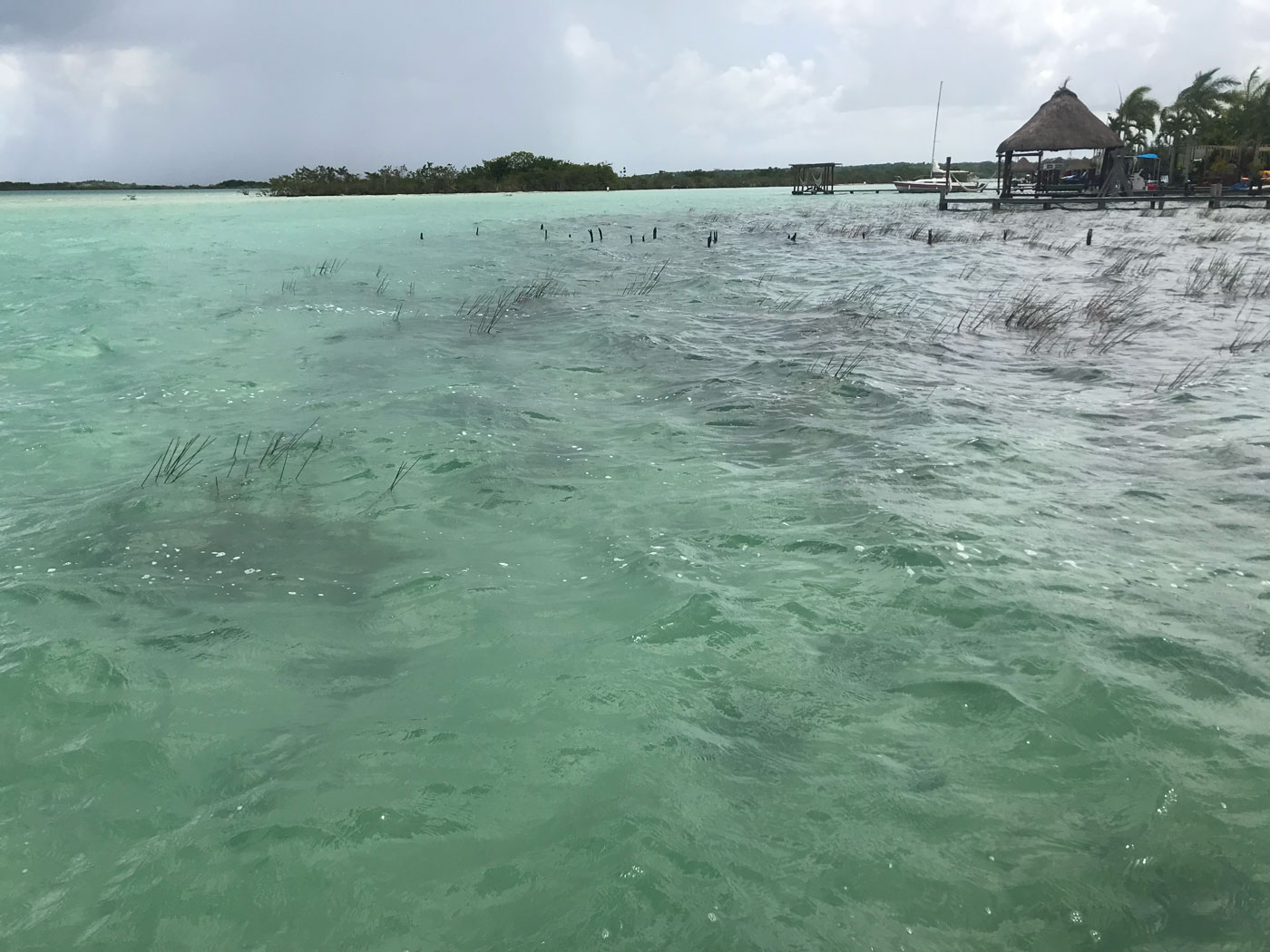Puck Lo

From here on out, all problems are also problems of climate catastrophe.
We didn't ask for it, but ours are the generations who must begin to clean up the wreckage if, in fact, we do not wish to perish in this wreckage. Everything that our predecessors, recent and long gone, left us with — generations of war, racist securitization, neoliberal policies, free trade agreements, union-busting, redlining, centuries of exploitation of humans, animals and the land, strip-mining, pipelines, fracking, coal-burning, colonization, slavery, genocide, land theft, a war- and prison-based economy — has caught up with us.
And our only models for facing the current state of the world, it seems, are enduring or escaping the apocalypse.

Apocalypse thinking may seem passive, and perhaps it is. But at the heart of the draw to the apocalypse, a rupture, a break, an end, is also a yearning for a beginning, a reboot, transformation. For this reason, leftists and religious devotees alike have long been enraptured by apocalyptic potentiality. Maybe our collective desire for and fascination with apocalypse is, for some, a reasonable and relatable desire to leave behind all the trappings of a particularly brutal last 500 years, give or take. Maybe it’s a haunting, a reminder to those who have forgotten, that every empire falls. Ultimately, apocalypse is a story that we all already know. It is a story of Western civilization, of other empires, of tyranny and tyrants and massacres and plagues.
For artists and storytellers, what can be made of apocalypse? Apocalypse is a persistent fear-fantasy of Western civilization even now as we teeter at the edge of what may be the end of the Anthropocene. What possibly are we to do here in our new normal, where seasonally orange skies rain ash from burnt forests, flash floods murder us in our homes, a deadly virus mutates, thanks to the proliferation of fake news and inequality comparable to that of pre-revolution France in 1788? All this layered upon a violent, continued and expanded police occupation of economically abandoned communities of color and the ongoing exoneration of white vigilantes. And that’s just the US.
As the nation’s birth rate plummets to an all-time low, we may wonder if we should mourn or celebrate. There’s hopelessness, and hope — both artifacts of the habit of feeling and acting like the lead character in the fictionalized movie that is life. Scholar Lauren Berlant termed the term “cruel optimism” to describe the way that post-WWII, US liberal-capitalism promised “the good life” in the forms of upward mobility, job security, political and social equality — and even while it consistently fails to deliver on those promises. People nonetheless remain attached to that desire, which becomes an obstacle to their flourishing. Meanwhile, unsurprisingly, social Darwinistic arrogance has inspired those wealthy enough to contemplate pursuing cartoon-evil-villain survival strategies for themselves are unabashedly doing just that, as exemplified by Elon Musk and various zillionaire preppers who’ve fled for New Zealand or custom built bunkers. Is this, then, the full spectrum from which we might choose our teams for the apocalypse, comprised of preppers, nihilists, technocrats, eugenicists and denialists?
Science fiction writer Octavia Butler, whose work interrogates power, survival and the limits of the human, named in her Xenogenesis trilogy Homo sapiens’ apparently fatal central contradiction: intelligence and hierarchy. In Butler’s novel this contradiction is discovered by gene-manipulating aliens who save the last of our species, cure us of cancer — and then, due to our apparent inability to refrain from the eventual self-destruction that is the hierarchy’s inevitable outcome, preemptively absorb and re-mash us. If that seems grim, consider another sci-fi take: Chinese author Cixin Liu’s Three-Body Problem trilogy explores “dark forest theory,” which postulates that any civilization, upon the realization that another exists, is bound to respond by attempting total annihilation or subordination of the other, lest it be destroyed or enslaved first. Both works ask the questions: What might the costs of survival be, and whom amongst us might achieve it?
Whether it is embedded immutably in universal law, Homo sapiens DNA, or is simply one tendency among many that finds expression when conditions allow it, our kind’s penchant for needless killing, cruelty, hoarding and other vicious acts in the interest of self-service has been a central concern for almost every major system of thought in every era.
There are other stories out there. Indigenous scholars and activists have long shown us, through actions and words, that other ways and worlds are possible. Anthropological dissenters have presented outlier models, from the decentralized circular cities of ancient Ukraine to feminist interpretations of goddess-worshipping cultures in Stone Age Europe. Maybe it’s time to revisit those ideas.
Not that I think that’s all it’ll take to turn this ship around. Indisputably, the age-old conundrum of human evil — described by Butler’s fatal contradiction, or Liu’s dark forest theory — seem to complicate whatever ideals we may have to treat each other and our planet well. Despite everything, our kind seems incapable of meaningfully learning from the past, or even from others nearby ourselves. Each lesson we absorb is individualized, lodged in time and hard-won. So even when we dismantle today’s structures of oppression, we face the very real possibility of forming new ones and reconstituting old oppressions all the while, devising varied ways to ostracize and death-make in every culture, under the guise of every kind of politics, religion, and creed.
Yet, might our limitations also redeem? In July, I took a trip to a remote lagoon in the Yucatan peninsula in Mexico. It was during the heady early summer moment of the global pandemic when everyone I knew was newly vaccinated, and the Delta variant had not yet ravaged the world. The same week that I booked my airline tickets, The New Yorker ran an article featuring my destination entitled, “How a Mexican Lagoon Lost its Colors.” The article is a devastating depiction of how capitalism and tourism has murdered yet another vestige of beauty and relational intactness. Upon my arrival, I mentally prepared myself for the monochrome of muddy green water that the article warned me about — a casualty of climate change-induced rains, recently-paved highways widened for tourism, and resulting cataclysmic landslides weeping loose soil directly into what had been known as the lake of seven colors.
Instead, I found a stunning, aquamarine lagoon, rich and dense with silver shadows and shimmering hues of indigo, emerald, cobalt and azure. I realized that I had no way to know if the lake “should be like this” any more than I can know what Lenapehoking looked like before it was New York City, or what a virgin old-growth redwood forest would be like, versus those still-very-stunning ones I visited in Northern California. As a time-bound animal, I have no access to experiencing firsthand anything beyond my own lived experience. And, goddamn it, I guess I’ll just have to love what I can access, flawed though it may be.
Who knows if this lake is pure and clean? I thought. I’m not pure or clean. Fuck it. We’re all just doing the best we can. There is no return to some better state of being. There’s only forward.
Making films, I am often astonished — even occasionally ashamed, or angry — that what is so cruel or harmful can also be so beautiful. At times, it has felt like betrayal: Rainbows beaming out from oil slicks. The morning light tenderly etching the fine edges of razor wire. The prismatic reflections on the prison bus windows. The bright, white bone of the human skull in the desert. The fiery red coal sunsets of poisonous skies. How is it that our eyeballs and our brains, which evolved among wildflowers and fish and pine trees and mountains, have the ability to translate such foreign, modern, harmful phenomena into beauty? If our brains can make that shift conceptually, perceptually, might our brains be able make a different kind of epistemic break, look past the bullshit we learned, discard the logic and values of the world we grew up in, and create new ones that aren’t about hoarding, and depleting, and feeling so damn isolated and afraid of everything? Maybe we evolved to deal with this shit - the constant contradiction of hierarchy and intelligence that leads to violence and destruction - and the fact that we can see beauty in such fucked-up places is some kind of weird riddle for unlocking the rest of the evolving we’ve got to do.
So here we are. Beauty, at the end of the world. Maybe it’s our way through. Maybe not. But imperfect and polluted as I am, as we all are, as that lake might be, we’re still here for now. We’re still part of, and therefore are in fact, this world. That’s not nothing. Maybe we begin by being where we are. Actually start to deal with the problems that we have, and stop pretending that someone else will save us from the apocalypse. Maybe we throw out everything that hasn’t worked. Do it again, and again. And know that like our semi-toxic sunsets, it will be different each time, maybe more fucked-up sometimes, but probably still at least a little beautiful. Maybe that’s not nothing.